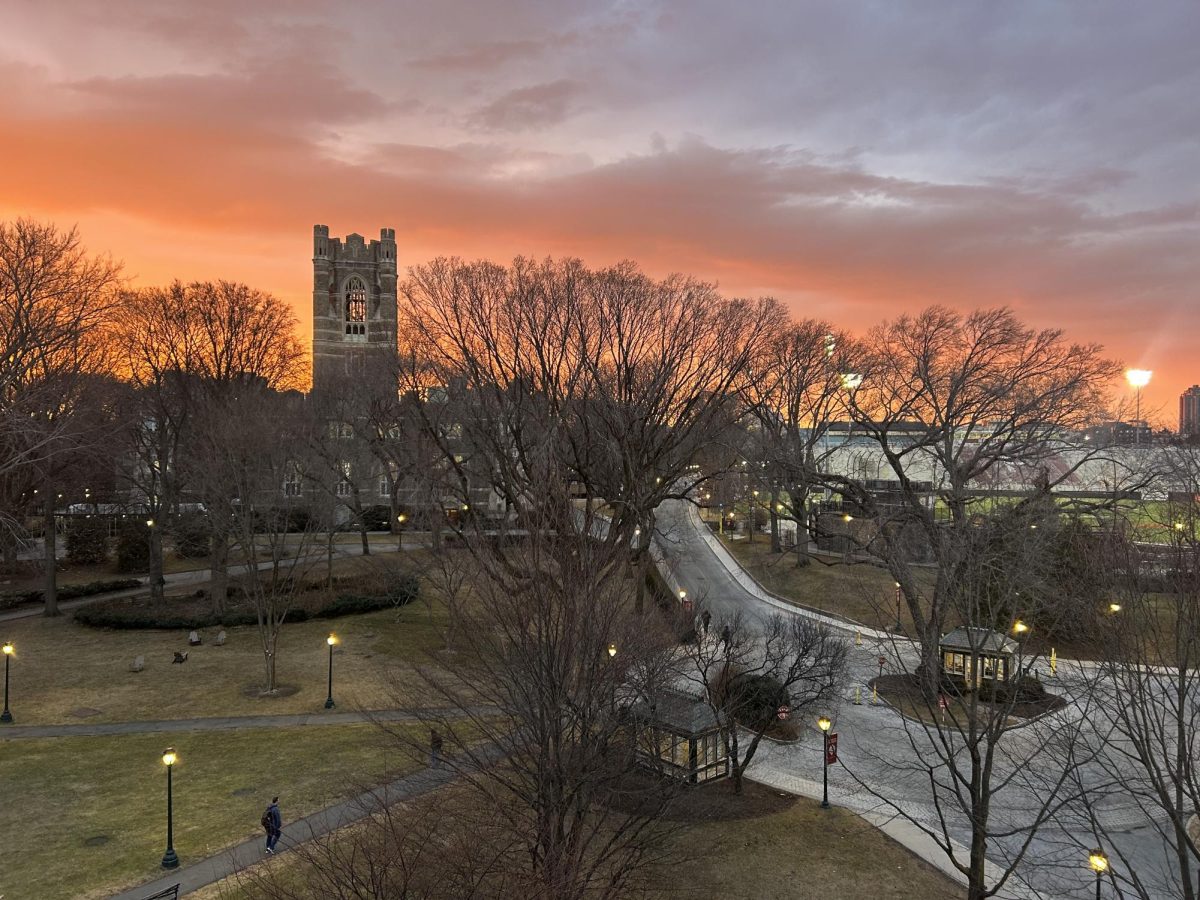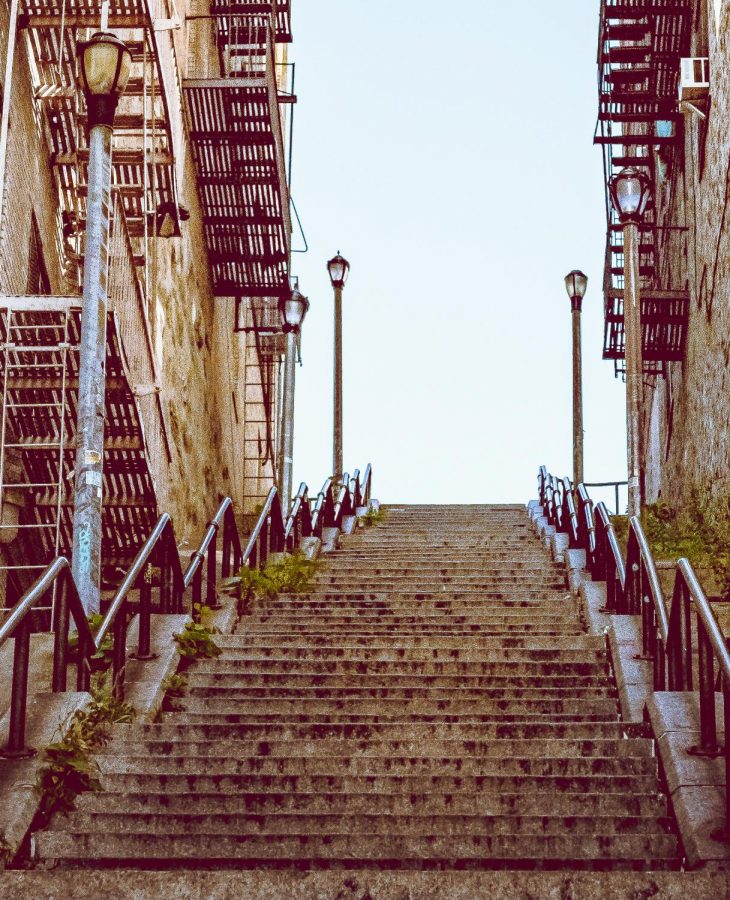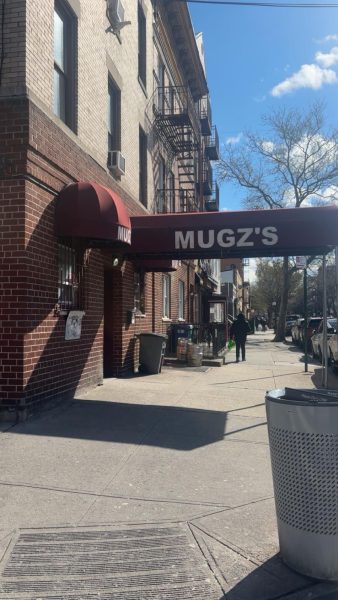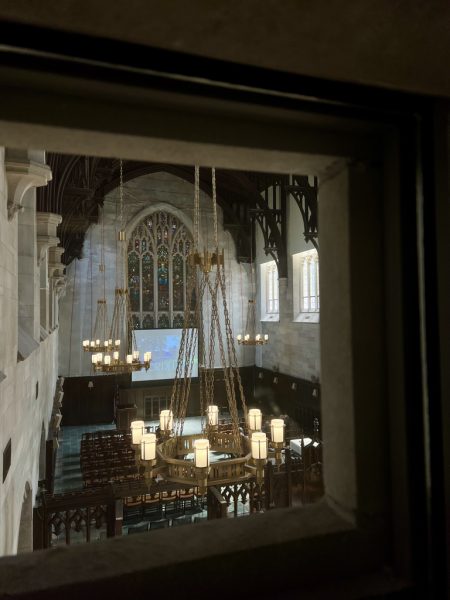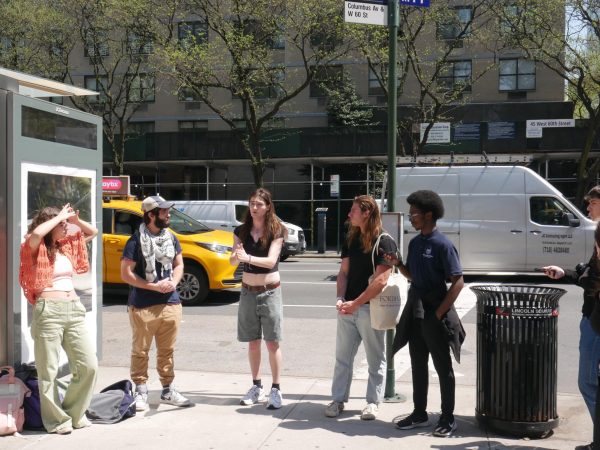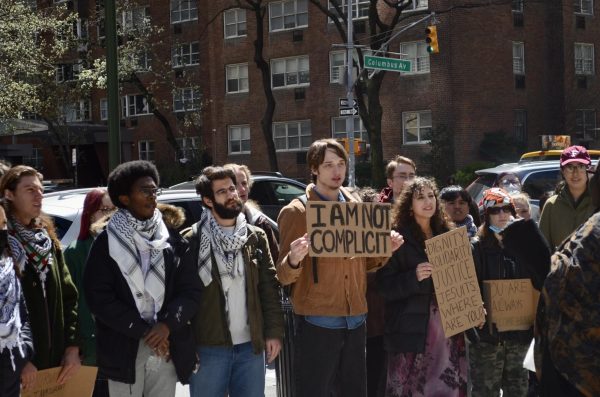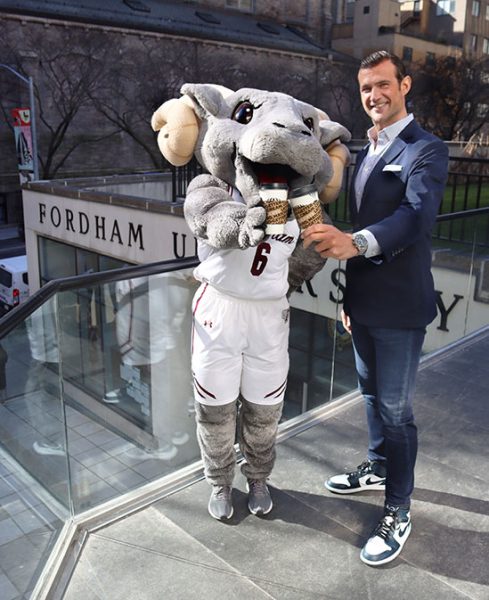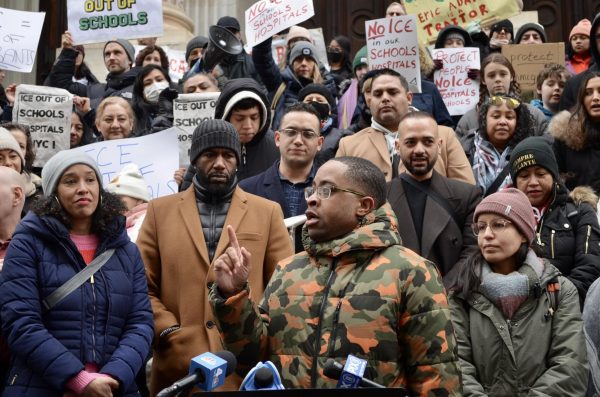“Joker” Steps Attract Tourists to the Bronx
After the recent release of the new “Joker” movie, there was an influx of tourists visiting the steps from a scene in which Gary Glitter’s “Rock and Roll Part II” blares as the Joker descends the stairs dancing and heading into deeper madness. The scene and the movie as a whole have recieved backlash for glorifying the path to violence that can lead someone to commit an atrocity such as a mass shooting. Others said it romaniticized mental illness.
Famous steps are no new phenomenon. The stairway in the “Joker” movie is comparable to “The Exorcist” steps in D.C. and Philadelphia’s notorious Rocky steps. However, this instance may be different because of the steps’ location in the Bronx.
The steps are in the Highbridge neighborhood, rising from Shakespeare and Jerome Avenues.
Before the movie was released, they served the sole purpose of transportation.
Now, people are using the Bronx as an Instagram backdrop. Some permanent residents of the borough are encouraging this newfound tourism, but others are expressing their grievances.
Ruben Diaz Jr., the Bronx borough president, responded to a Twitter post from Time Out New York promoting the steps.
“When you visit, check out http://ilovethebronx.com and @TheBronxTourism and learn about some of our borough’s many fine attractions and restaurants… and spend some $$$ in The Bronx!” he wrote.
The main issue people have with the influx of tourists is that they aren’t supporting the borough as a whole.
Many people travel solely to the steps without spending money at local businesses or taking time to appreciate the culture of the Bronx.
People who grew up around the neighborhood surrounding the stairs remember avoiding them, along with the neighborhood altogether.
Some say the area is now, in a way, being gentrified because of the attention.
Edgar Santana, Bronx native, curator of Everyday Bronx and photographer (@esantana) believes that, in general, tourism is a good thing in the Bronx.
“Everyone is welcome,” he said. “However, some neighborhoods in the borough are some of the poorest in NYC. Visitors should understand and respect that.”
Santana mentioned giving back to the Bronx community as well as simply being respectful of permanent residents of the Bronx as parts of ethical tourism.
“Those steps have been there way before Joaquin danced on them,” he said. “I saw the movie and loved it. I loved how gritty the scene was and loved how they used the backdrop of the Bronx to showcase that. The issue is really about these people coming into the borough which they have never stepped foot in before to make the stairs an ‘Insta-moment.’”
People still need to use the stairs for their actual purpose: transportation.
Cathyrine Spencer, a native Bronx woman, said the tourism caused by the stairs is an inconvenience to her.
“Every day when I come down the stairs, I have to go through a barrage of people,” she said.
Residents of the Bronx have been pushing back against tourism.
In all-caps red spray paint on the walls lining the steps, there are the phrases such as “GO HOME” and “MY POVERTY IS NOT YOUR PHOTOSHOOT.”
Santana argued that the issue of the steps would not be so controversial if people actually appreciated the culture of the Bronx as a whole.
“The Bronx is more than a zoo, the Yankees and steep steps,” he said. “There is such [sic] much culture and diversity in this borough. If these people would see what else the Bronx has to offer and support small business, I don’t believe this would be a controversy.”
In response to a question about getting a complete, well-rounded cultural experience when visiting the Bronx, Santana said visitors should walk down Grand Concourse.
“Check out the beautiful architecture. Go to the Bronx Museum or the Andrew Freedman Home,” he said. “Go to City Island and have clams on the half shell while drinking a cold one.”
Santana said there are many opportunities for tourism in the Bronx, including but definitely not limited to visiting the stairs from the Joker movie.
He said that those who do visit the steps should also contribute to local businesses, recognize the history of the neighborhood and appreciate the culture of the Bronx.
“I love my borough,” he said. “I want to share the beauty of everyday life here. I want outsiders to see that,” Santana said. “Just respect it. Check out what else we have. You won’t be disappointed.”































